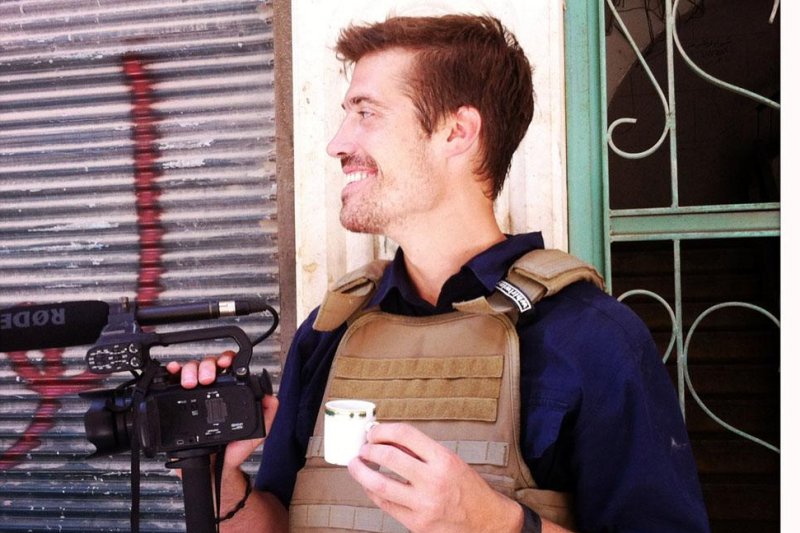James Foley in Aleppo, Syria, in July 2012, four months before his kidnapping. (Free James Foley/Nicole Tung)
WASHINGTON, Aug. 21 (UPI) -- New details are emerging of the months ahead of this week's grisly execution of journalist James Foley, including a failed rescue attempt and a demand for millions in ransom from his captors.
The Department of Defense revealed Wednesday it had staged a rescue mission to Syria in an effort to recover Foley and other Western prisoners held by the Islamic State.
"The President authorized action at this time because it was the national security team's assessment that these hostages were in danger with each passing day in ISIL custody," said Assistant to the President for Homeland Security and Counterterrorism Lisa Monaco. "The U.S. Government had what we believed was sufficient intelligence, and when the opportunity presented itself, the President authorized the Department of Defense to move aggressively to recover our citizens."
Held earlier this summer, the special operations forces mission included a raid on a location where U.S. intelligence believed the hostages were held. Islamic State fighters fired on the U.S. troops when they landed to discover the hostages had been moved. Several of the IS fighters were killed, and one American was wounded by ground fire.
White House National Security Council spokeswoman Caitlin Hayden said the administration had not originally planned to disclose the operation, citing "operational security" and a need to protect the hostages, many of whom presumably are still in IS hands. She said the administration spoke out to get ahead of planned reports from news organizations.
The rescue attempt came after Foley's captors demanded a ransom of 100 million euros ($132 million), according to Philip Balboni, the president and CEO of GlobalPost, for whom Foley was reporting when he was captured.
The U.S. and Britain, unlike many European countries, refuse to pay ransoms for captured Westerns, saying that doing so only encourages groups like IS to continue the practice. Four French and three Spanish hostages were released this year after their captors were paid significant sums of the kind Foley's captors demanded.
At least one other American, journalist Steven Joel Sotloff, and several British nationals are believed to be held by the same group who executed Foley in a video that appeared this week. Sotloff appears in the video, kneeling and dressed, like Foley was, in an orange jumpsuit, as his black-clad captor threatened to execute him if the U.S. did not cease its campaign of airstrikes immediately.
But President Obama did not appear amenable to those demands. The president appeared deeply angry as he swore to continue efforts to "extract this cancer so that it does not spread."
"One thing we can all agree on is a group like ISIL has no place in the 21st century," Obama said.
"The United States of America will continue to do what we must do to protect our people," he said. "We will be vigilant and we will be relentless. When people harm Americans, anywhere, we do what's necessary to see that justice is done. And we act against ISIL, standing alongside others."















